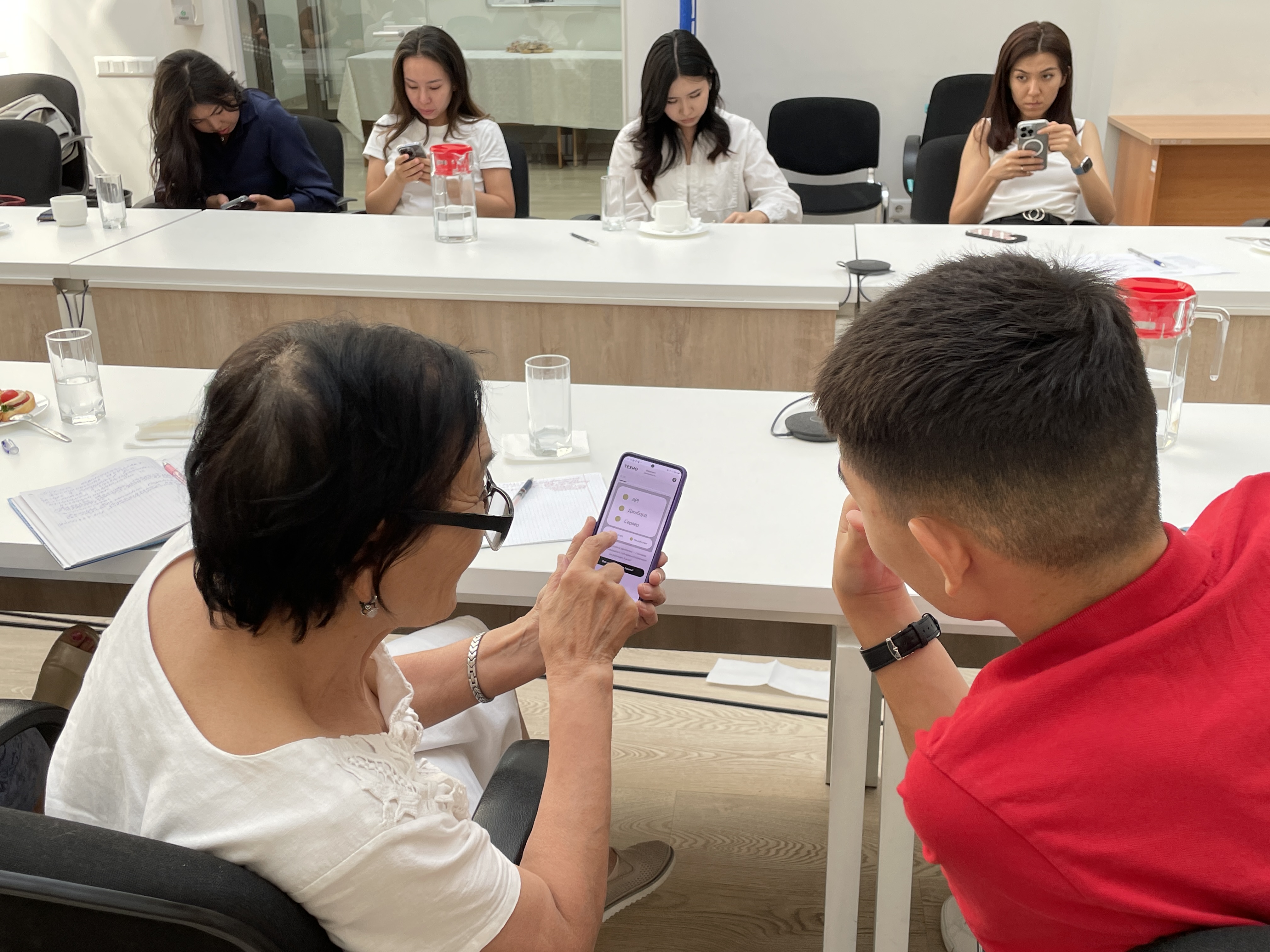Creating Digital Accessibility in Kyrgyzstan
August 28, 2024
In today's digital age, the ability to access information and services online is not just a convenience—it's a necessity for everyday life. For persons with disabilities, digital accessibility is the key to unlocking countless opportunities for independence, participation, and equal engagement in society. Recognizing this, the United Nations Development Programme (UNDP) in Kyrgyzstan is taking significant strides to promote digital accessibility, ensuring that the digital world is open and inclusive for everyone.
From August 19 to 23, 2024, UNDP in Kyrgyzstan organized a series of workshops on digital accessibility. These sessions brought together a diverse group of participants, including representatives from government agencies, private sector entities, public organizations, the community of persons with disabilities, as well as UNDP personnel and other UN agencies. The aim was to enhance understanding of the principles of digital accessibility and to equip participants with the skills and knowledge necessary to create and implement accessible digital resources within the Kyrgyz context.

Participants of the training on universal design
Leading the Way in Digital Accessibility
The workshops were led by Ziyat Abdykaimov, a renowned expert on digital accessibility and assistive technologies from Nazarbayev University in Kazakhstan. With his extensive experience in implementing and evaluating digital products and services for various disability groups, Abdykaimov guided participants through the complexities of digital accessibility. His focus was on ensuring that digital products—whether they are websites, mobile applications, online courses, or multimedia content—are accessible to all users, regardless of their disabilities.
Digital accessibility, as emphasized during the workshops, is about more than just compliance; it’s about providing equal opportunities for persons with disabilities to perceive, understand, manage, and interact with digital content. This includes those with hearing, vision, mobility, speech, perception, and cognitive impairments.

Participants of the training on universal design
Increasing Opportunities Through Digital Inclusion
For persons with disabilities, digital accessibility is transformative. It opens doors to essential services—social protection, healthcare, banking, and transport—enabling independent living and self-reliance. With accessible digital services, individuals can work remotely, pursue education through online learning, engage with media, and utilize assistive technologies that enhance their daily lives.
In Kyrgyzstan, the journey towards digital accessibility has already begun. The adoption of national standards based on international guidelines, such as the Web Content Accessibility Guidelines (WCAG), is a significant step forward. As First Deputy Minister of Digital Development Zhumaliev Zhumamudun highlighted during a workshop organized by UNDP, the next crucial step is implementing these standards with active involvement from end users—persons with disabilities themselves.

During the training for the Ministry of Digital Development
Collaboration and Community Engagement: A Path Forward
The series of workshops also underscored the importance of collaboration. During a workshop with representatives of the Kyrgyz Association of Software and Service Developers and the High-Tech Park, participants discussed the need to align development processes with established accessibility standards. They stressed the importance of involving end users at every stage of product development, from planning to launch, ensuring that digital products meet the real needs of those with disabilities.
Additionally, a meeting between the expert and representatives of the community of persons with disabilities highlighted the vital role of digital literacy. Participants emphasized the need to enhance the digital skills of users with disabilities, particularly in using everyday digital products and services like mobile banking, online shopping, and AI-powered tools such as Be My Eyes.

During the practical assignment for the Kyrgyz Association of Software and Service Developers
Building a More Inclusive Future
UNDP’s commitment to digital accessibility extends beyond its own operations. The training seminar for UNDP personnel and other UN agencies, including UNICEF and UNFPA, focused on understanding the rights and challenges faced by persons with disabilities in the digital space. The sessions provided insights into existing adaptive solutions and reinforced the importance of designing digital resources that cater to the needs of all users.
As Kyrgyzstan continues its journey towards a more inclusive digital future, the work initiated by UNDP and its partners is a powerful reminder that accessibility is not just a technical requirement—it's a fundamental human right. By promoting digital accessibility, we are not only expanding the rights of persons with disabilities to access information and communication, but we are also paving the way for a society where everyone has the opportunity to thrive.
Conclusion
Digital accessibility is more than just a concept; it's a movement towards inclusivity, empowerment, and equality. The recent training sessions organized by UNDP in Kyrgyzstan are a testament to the progress being made, but they also highlight the work still to be done. As we move forward, let us remember that an accessible digital world is a better world for all.

 Locations
Locations